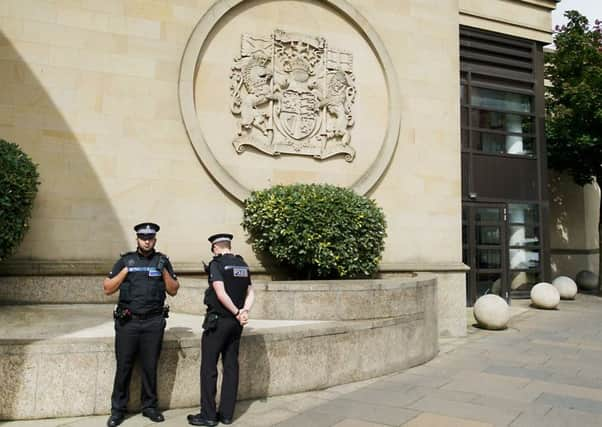140-day trial rule ‘routinely flouted’ by courts


Alleged victims of crime are suffering because the increasing demands on judges and courts mean that over-running cases cause lengthy delays in them achieving closure.
The problem has come to light in an article in the latest edition of Scottish Legal News magazine, which reports lawyers’ concerns about the “oppressive and unjust” routine flouting of the 140-day rule.
Advertisement
Hide AdAdvertisement
Hide AdThe 140-day rule is a central tenet of Scots law, requiring a trial to start within 140 days of the accused being committed.
The emphasis that Scots law puts on swiftly delivering justice has been described as a “jewel in the crown” of Scotland’s separate legal system.
Senior members of the legal profession have blamed the delays on a lack of judges, of court space and of resources for the preparation of trials.
George Donnelly, vice-president of the Dundee Bar Association, said the 140-day rule for High Court trials was being “routinely disregarded in an oppressive and unjust way”.
He said: “The fact is that the system is broken. There are not enough judges or courtrooms to try these cases and not enough resources or facilities to prepare the cases.
“I have one case, which is not complicated, and the two accused have been on remand since February with a trial date set for next month. That means they have served ten months – the equivalent of a 20-month sentence with full remission.”
Donnelly mentioned another case which he thought reflected badly on the Scottish legal system.
He said: “I represent an English client charged with serious offences and told him that unlike England he would not be left to rot on remand here in Scotland. I have now had to go cap in hand to this client and tell him that is exactly what is happening to him.”
Advertisement
Hide AdAdvertisement
Hide AdThomas Ross, president of the Scottish Criminal Bar Association, said he fears the situation is set to worsen.
“Every busy High Court practitioner has noticed that the period between preliminary hearing and trial is getting longer and longer.”
Ross added that at a preliminary hearing on 24 October, he had a trial assigned for 6 May, 2016.
“The custody time limits applied to the accused, with the result that the 140-day time limit was extended by 164 days,” he said. “All of the data available would suggest that things will get worse before they get better. It is essential that the trend be monitored so that a proper assessment can be made of what is required to reverse it. Until people oppose the extensions, nothing will change.”
Ross Yuill, president of the Glasgow Bar Association, said: “The Crown are underfunded and do not have the resources to cope with the number of cases being reported to them … This has a direct impact on the view the public have of the justice system.
“Leaving aside for a moment the very important rights of an accused, the alleged victims of crime are having to wait years to get closure on cases involving them. That is unfair and leads to people losing faith in our justice system.”
Eamon Keane, Scottish Legal Action Group convener and a criminal defence solicitor, said: “It is obvious that the current 140-day limit now appears to be being routinely extended in the High Court.”
A Scottish Government spokesman said: “There can be no extension of the 140-day remand limit without approval of the court, upon application from either the prosecution or defence. The court’s decision to grant or refuse an extension can be appealed.
“We have no plans to change the law around the High Court remand limit.”